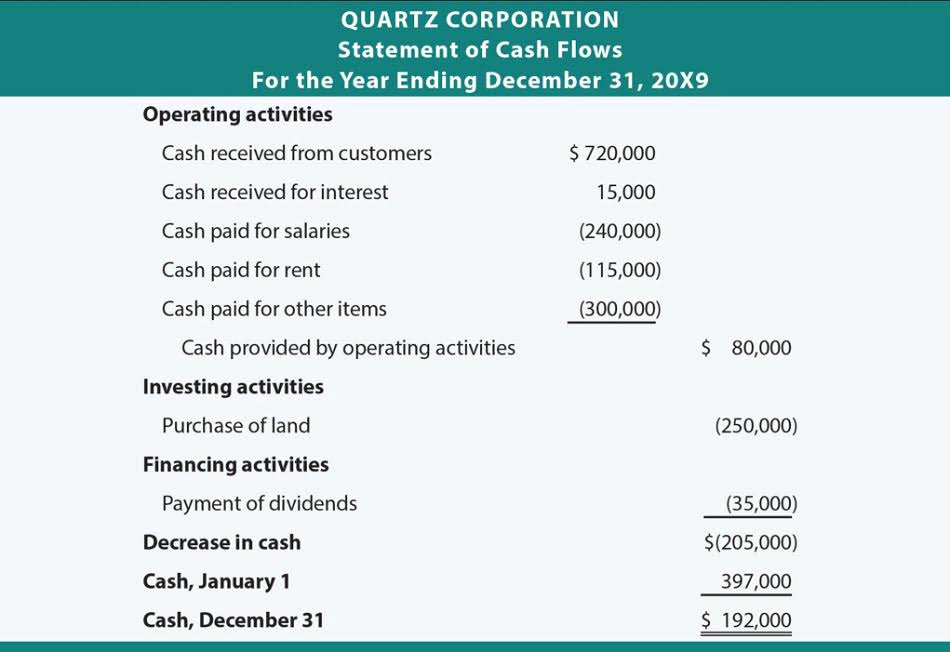13 4: Corporations Business LibreTexts

Your business structure affects how much you pay in taxes, your ability to raise money, the paperwork you need to file, and your personal liability. Corporations are more difficult to form as compared to other types of businesses. This is because corporations must comply with stricter rules as compared to other types of businesses.
Building Better Businesses
It’s worth noting that sole proprietorships and incorporations are not the only business structure options. You can also consider cooperatives, nonprofits, and general partnerships (which are very similar to a sole proprietorship but with two or more owners). There are several types of corporations, including C corporations, S corporations, B corporations, closed corporations and the advantages of forming a corporation for an employee may be nonprofit corporations. Some alternatives to corporations are sole proprietorships, partnerships, LLCs and cooperatives. C Corporations are entities that are legally distinct from their shareholders, which protects the personal assets of these shareholders from liability. If you choose to form a C Corp, you should be aware that your company will be subject to double taxation.
- We believe everyone should be able to make financial decisions with confidence.
- Corporations are more difficult to form as compared to other types of businesses.
- These arrangements are far less common and can be more difficult to set up.
- Business News Daily provides resources, advice and product reviews to drive business growth.
- As you can see, a sole proprietorship is the simplest business structure.
- This access to funding is a luxury that other entity types don’t have.
- Simply put, a sole proprietorship is a business structure in which an individual owner of a business takes on all the legal responsibilities, profits and debts of the company.
Track income, expenses, run financial reports and maximize your deductions with QuickBooks.
With QuickBooks, you can experience the ease of accounting solutions that adapt and grow with your business, so you’re equipped for success at every stage. If you need help picking between a sole proprietorship vs. corporation, you can post your legal needs on UpCounsel’s marketplace. Lawyers on UpCounsel come from law schools such as Harvard Law and Yale Law and average 14 years of legal experience, including work with or on behalf of companies like Google, Menlo Ventures, and Airbnb. In plain language, a sole proprietorship is not a separate entity from its owner.
Key disadvantages of a corporation

Additionally, a corporation is known to have a prolonged life versus partnerships and sole proprietorships. This is thanks to its continuous activity despite the death of a director or a shareholder. Corporations are also considered separate entities from their shareholders. This is one of the main reasons why corporations are limited liability. Stockholders do not have the rightto participate actively in the management of the business unlessthey serve as directors and/or officers. Like other pass-through entities, sole proprietorships tend to face tighter scrutiny at tax time.
- These include holding director and shareholder meetings, recording minutes, having the board of directors approve major business transactions and corporate record-keeping.
- Alongside the lengthy application process is the amount of time and energy necessary to properly maintain a corporation and adhere to legal requirements.
- Accordingly, the information provided should not be relied upon as a substitute for independent research.
- As the sole business owner, you have total control over decisions, finances and anything else involved with how your company functions.
- There’s a lot more paperwork involved with corporations, including yearly documentation that must be filed with the government.
A sole proprietorship is defined as an unincorporated business owned by one person who pays personal income taxes on profits. They’re easy to set up, but that convenience comes at the expense of certain protections that you’d otherwise get through an LLC or incorporated business entity. So, depending on the specifics of your business, you may find that a sole proprietorship doesn’t give you the full range of protections that you need — and that the disadvantages outweigh the benefits. When you’re a sole proprietor you are not an employee of your business entity. Your business doesn’t have to pay payroll taxes on your income or withhold income tax from your pay.
Should you choose a sole proprietorship or incorporation?

Similarly, even if the existing shareholders cannot provide capital to a corporation, it can issue shares to new shareholders to generate finance. Other types of businesses, such as sole proprietorships and partnerships, depend on the existing owners’ capital. If you’re an entrepreneur with a great idea for a business venture, at some point you need to decide whether to incorporate. Choosing to incorporate can help you protect you as your small business grows. On the other hand, you may only require a simple structure and want to register your business as a sole proprietorship. Whichever you decide on, it’s important that the business structure of your new company reflects your goals for the future.

One of the newest, most popular types of business entity is a limited liability company (LLC). LLCs are governed by state not federal law, and the owners of the LLC will need to decide how the company will be treated for tax purposes. With an LLC, you will have strong personal liability protections such as corporations and beneficial taxes like a partnership. A drawback, however, is that an LLC can be disbanded if an owner dies or leaves the company.

However you choose to structure your business, Ownr makes the process seamless and easy, giving you more time and energy to concentrate on growing your business. If you want to know when the best time to incorporate your business is, we recommend sooner rather than later. Establishing credibility as a business takes time, and incorporating helps build it. Many customers, suppliers and lenders prefer to do business with established businesses, with some lenders requiring a business to have been operational for some time to be considered for loans. If your business becomes super profitable, you’ll personally pay higher taxes. While high profits are certainly a benefit, it’s important to know you may jump to a higher tax bracket as your business’s finances improve.
- Endowedwith many of the rights and obligations possessed by a person, acorporation can enter into contracts in its own name; buy, sell, orhold property; borrow money; hire and fire employees; and sue andbe sued.
- Banks may view a new business with a small balance sheet as a high-risk borrower.
- Another one of the biggest advantages of sole proprietorship is the much simpler and straightforward tax requirements, especially compared to other entity types.
- Besides that, the minimized formalities in sole proprietorships and partnerships can be a distinguishing feature.
- You must follow your state’s legal requirements to become a corporation.
- Below is the information you’ll need to prepare in order to file your articles of incorporation—a process that Ownr guides you through when you create an account and incorporate your business.
Choosing the Right Business Entity
Although this structure won’t be right for every business, there are numerous benefits of sole proprietorship for many entrepreneurs. This type of business entity is easy to set up, is straightforward and requires fewer procedural steps than other entities like corporations. In particular, one-person companies benefit specifically from the advantages of sole proprietorship, especially if their business doesn’t require a complex legal or financial setup. These are different from smaller types of businesses such as sole proprietorships and partnerships in many ways. There are many advantages and disadvantages of corporations as a type of business.
